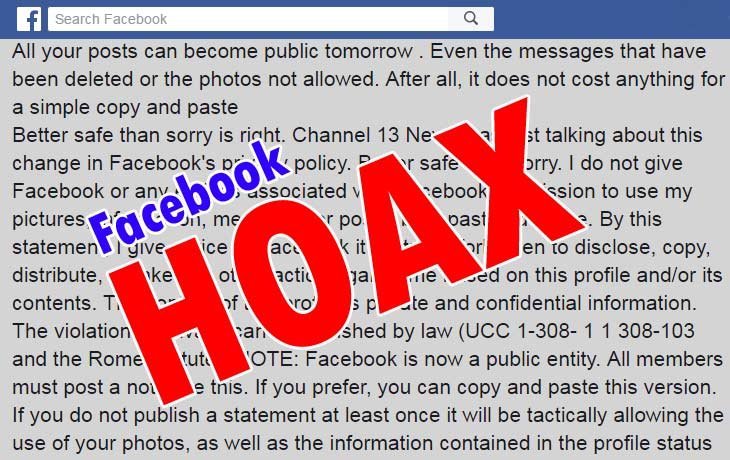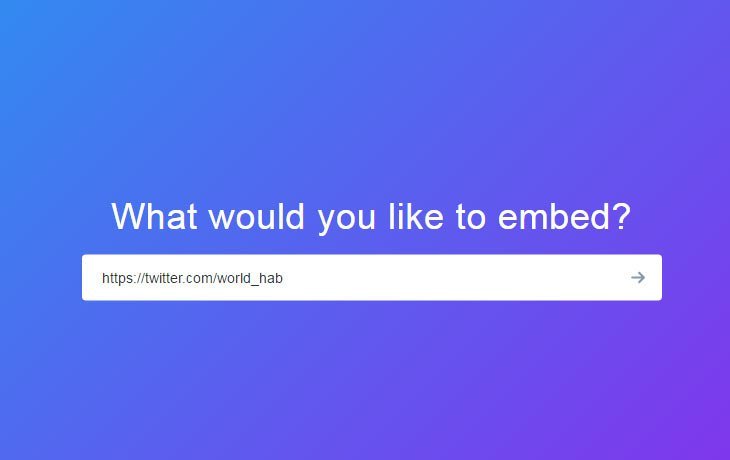Facebook warns that a viral “privacy notice” claiming “all your posts can become public tomorrow” is a hoax spreading across India and the UK. The post tells users to copy legal text to stop Facebook from using their photos and messages. Facebook says this claim is false and that users already own their content and control visibility through privacy settings.
What The Viral Post Claims
The hoax looks official and uses legal-sounding language. It tells people to copy and paste a status that blocks Facebook from using their content. It also names laws like UCC 1-308 and the Rome Statute to sound credible.
Copy and paste notices do not change your privacy on Facebook at all. They create no agreement and have no effect on who can see your posts. The text often says deleted messages and photos will be made public, which is not true.
- Claims all posts and messages will become public “tomorrow.”
- Demands users “do not share, copy and paste” to be safe.
- Cites UCC 1-308 and the Rome Statute, which do not apply here.
The wording shifts slightly each time the hoax returns, but the core claim stays the same. These posts spread fast because they play on fear and urgency.
What Facebook Actually Says
Facebook has addressed this hoax many times, including this week. The company states, “You own your content and can control how it is shared through your privacy settings.” That means your posts do not suddenly become public just because of a rumor.
You control who sees your posts by choosing audience settings for each post or by setting a default audience in your account. If you do nothing, a copy and paste status does not change anything. Deleted messages are not published, and old photos do not get unlocked.
The legal names in the hoax do not force Facebook to do anything. Contract terms and data use are set by Facebook’s Terms of Service and your privacy choices, not by a wall post.
How To Control Your Privacy Settings
Instead of sharing viral notices, take a minute to check your Facebook privacy settings. This quick review will help you control who sees your posts, photos, and profile details.
- Open Settings and select Privacy to choose your default audience for future posts.
- Use the audience selector on each post to pick Friends, Only Me, or Public.
- Run Privacy Checkup to review your profile info, posts, and connected apps.
- Limit past posts if you want to change old Public posts to Friends in one step.
- Review tagged photos in Activity Log and adjust tagging and review controls.
Do not rely on viral posts to protect your privacy, use the tools in your account. Take 3 minutes to adjust settings and you will have real control over your content. You can repeat this review anytime a rumor resurfaces.
Myth And Reality: Quick Comparison
This side by side look shows why the “All your posts can become public” notice is false. Share it with friends who may be worried by the hoax.
| Claim In Viral Notice | Fact |
|---|---|
| All posts will become public tomorrow unless you post a notice. | Post visibility does not change overnight and is controlled by your settings. |
| Deleted messages and blocked photos will be published. | Deleted items are not made public and cannot be published by a rumor. |
| Posting legal text creates a contract with Facebook. | A status update does not change Facebook’s Terms or data policy. |
| UCC 1-308 and the Rome Statute protect your profile. | Those laws do not apply to your Facebook account or content settings. |
The viral notice has no legal power and does not protect your data. Control rests with your choices in Privacy, Audience, and Tagging settings. If you are unsure, use Privacy Checkup for a simple walkthrough.
Why This Hoax Spreads And How To Respond
People share the notice to protect friends and family, but fear based posts often ignore facts. The message grows fast when it asks for copy and paste and sets a false deadline.
Respond by sharing accurate guidance and a link to Facebook’s privacy tools. Calm language works better than arguments. Show how to check settings and explain that ownership of content stays with the user.
If you see the hoax in your feed, be kind and help people fix their settings. A few clear steps do more good than any viral paragraph of legal jargon.









Leave a Comment